Zaglądając w polską politykę i media, trafia się do świata całkowitej niewinności, który jest jednocześnie światem absolutnego zepsucia. Bauman-stalinowiec, Cohn-Bendit-pedofil, Polański-pedofil… Ponura litania bluźnierczego egzorcyzmowania grzechów z samych siebie na osoby, których biografie naprawdę są nieco bardziej skomplikowane. Tabloidy rozumiem, one zostały w Anglii przed wiekami stworzone po to, aby utrzymywać w posłuchu i rozrywce lud. Jednak w Polsce język niewinności można dziś usłyszeć od postaci przedstawiających się jako pełnoprawni członkowie politycznej, intelektualnej albo przynajmniej publicystycznej elity.
Ten kult niewinności zdumiewa szczególnie u ludzi uważających Kościół katolicki za instytucję skutecznie namaszczoną przez Boga. Kościół katolicki, poza wielkimi dziełami dokonanymi w historii Zachodu i świata, ma też na swoim koncie (jako instytucja i ludzie, którzy ją tworzyli) zarówno pedofilię (na dużą skalę i w dodatku prawdziwą, a nie tę przypisywaną Polańskiemu i Cohn-Benditowi), jak też udział w eksterminacjach i ich namaszczaniu (także w wymiarze nieporównanie bardziej masowym i autentycznym niż w przypadku Zygmunta Baumana).
Zatem to ja, na gruncie skomplikowanej i „nieczystej” kultury, mam prawo bronić wkładu Kościoła w historię Zachodu i świata, podczas gdy nasi nowi fundamentaliści akurat od Kościoła powinni się trzymać z daleka, bo czego jak czego, ale „niewinności” nie znajdą w tej instytucji na pewno.
Jednak nie chodzi tu wyłącznie o wielkie instytucje i pojęcia ogólne. Nieustające mocowanie belki grzechu na ramionach wrogów, żeby się nie ześlizgnęła, umożliwia niedostrzeżenie źdźbła w oku własnym. W ten sposób Marcin Wolski na „debacie baumanowskiej” w Klubie Ronina podnieca się obrazami autora Nowoczesności i Zagłady „pranego po mordzie”, „nurzanego w smole i pierzu”, aby samemu wyegzorcyzmować z własnej biografii fakt bycia sekretarzem Podstawowej Organizacji Partyjnej PZPR w Programie III Polskiego Radia. I znów: dla mnie („nieczystego”?) ten fragment życia Marcina Wolskiego nie jest takim problemem, jak dla jego dzisiejszych fanów wychowywanych przez niego do absolutnej niewinności. Tym bardziej, że kariera Marcina Wolskiego w PZPR towarzyszyła jego współpracy przy tworzeniu drugiej najlepszej (po Zgryzie Macieja Zembatego) audycji satyrycznej w dziejach polskiego radia, czyli 60 minut na godzinę.
Podobnie jest ze skomplikowanymi biografiami Jarosława Marka Rymkiewicza czy Jacka Trznadla. Dla mnie są mniejszym problemem niż dla ich obecnych wyznawców, którzy muszą swoich świętobliwych starców pozbawiać „nieczystego” ciała, tak jak w Braciach Karamazow wyznawcy kultu starca Zosimy musieli udawać, że jego ciało nie ulega rozkładowi po śmierci. A jak udawać się dłużej nie dało, kult starca Zosimy upadł, a najszybciej w jego własnym klasztorze.
To nie prywatny grzech naszych egzorcystów (choćby nawet kultywowany przez nich publicznie) jest jednak problemem. Problemem są jak zwykle konsekwencje tego grzechu dla całego społeczeństwa wychowywanego do niewinności i zepsucia zarazem. Największą zbrodnią naszych egzorcystów jest stworzenie przez nich historycznej polityki niewinności. Jarosław Kaczyński, który sam chętnie używa ludzi o bardzo skomplikowanych biografiach i zna aż za dobrze skomplikowaną historię tego narodu, obiecuje, że kiedy zdobędzie władzę, wszystkie muzea i podręczniki w tym kraju staną się narzędziem historycznej polityki niewinności.
Miałem kiedyś nadzieję, że przynajmniej z Rymkiewicza będzie dla Polaków w tym wymiarze pożytek, jego nietzscheańsko-heideggerowski obraz historii jako „wielkiej szambiarki” wyprowadzi z niewinności ludzi wychowywanych od dziecka w przekonaniu o opatrznościowej opiece, która każdą katastrofę i grzech od nich oddala, a skoro nie oddala, to przynajmniej nadaje im natychmiastowy sens. Dopiero bowiem ludziom „wyprowadzonym z samozawinionej niewinności” (parafraza za Immanuel Kant) będzie można choćby mówić o emancypacji, a kiedyś będzie można razem z nimi tę emancypację nawet „robić”.
Niestety, im wyraźniej Rymkiewicz ma przed oczami miraż władzy nad Polakami, tym częściej on także mówi im wyłącznie o ich niewinności. Jerzy Pilch zajrzał jakiś czas temu do Samuela Zborowskiego, aby – jako „nieczysty luter z Wisły” – odkryć tam z pewnym zażenowaniem uwagę, że Polacy byliby „większym narodem”, gdyby urządzili masakrę innowierców. Rymkiewicz powtarzając, że Polacy są słabi, bo nigdy nie urządzili nikomu masakry, pogromu, wieszania, ścinania…, zwyczajnie nie mówi nam prawdy. Mamy na swoim koncie pogromy, masakry, zbrodnie – tak jak wszystkie inne narody. Różnica jest taka, że nasze pogromy, masakry i zbrodnie częściej są prywatne niż państwowe. Ale to nie bierze się w przeanielenia, ale z większej „prywatyzacji polityki w Polsce” (cyt. za człowiekiem, który pełni dziś funkcję państwową, więc nie chcę go cytować w tym akurat kontekście). Zatem nawet zbrodnie polityczne (pogromy na mniejszościach etnicznych i religijnych) zostały w Polsce w nieporównanie większym stopniu „sprywatyzowane”. Co staje się oczywiście argumentem dla twórców naszej historycznej polityki niewinności, ale mocno chybionym moralnie.
Do diabła tam z moralnością! Nasi twórcy i praktycy historycznej polityki niewinności to przecież makiaweliści za trzy grosze (niestety, na makiawelizm droższy i lepszej jakości zazwyczaj nas nie stać). Są zatem przekonani, że utrzymywanie Polaków w bluźnierczym i fałszywym stanie niewinności to „pragmatyczna polityka historyczna”. Zabijają duszę tego narodu, w zamian nie uzyskując ani jego bezpieczeństwa, ani dobrobytu czy siły. Przeciwnie, kiedy ze swoich ulubionych Niemców, którymi są po buracku zafascynowani, chcą naśladować nie tych z pokolenia ’68, którzy potrafili się przeciwko pragnieniu niewinności swoich nazistowskich matek i ojców zbuntować, ale twórców serialu Nasze matki, nasi ojcowie, przybliżają tylko kolejną katastrofę własnego narodu.
Ponowne popadnięcie Niemców w historyczną politykę niewinności, zanim zabije ich samych, zabije wcześniej całą Europę. Tymczasem fałszywa niewinność Polaków zniszczy tylko nas samych. Moralnie i pragmatycznie może nas ocalić wyłącznie przyłączenie się, i to z jak największą determinacją, do podejmowanych w Europie prób „historycznego rozbrojenia”, budowania europejskiej polityki historycznej, poczciwych prób pisania wspólnych podręczników historii itp.
Jeśli nam się nie uda, guderianowska dywizja pancerna Naszych matek, naszych ojców i tak zmiażdży spieszoną kawalerię Czasu honoru w jakiejś kolejnej kampanii wrześniowej.
A któregoś kolejnego 17 września dywizje putinowskiej polityki historycznej i tak zadadzą skuteczny cios w odsłonięte plecy ochotników naszej „polityki historycznej”, którzy nawet bunkry niewinności umacniają głównie dla potrzeb polskich wojenek domowych. Zatem przy pomocy historycznej polityki niewinności może Wałęsę uda się emocjonalnie zdestabilizować do końca, ale na Berlin czy Moskwę z takim uzbrojeniem wyruszać bym nie proponował.

 Wspieraj
Wspieraj 

 Wspieraj
Wspieraj  Wydawnictwo
Wydawnictwo 
 Zaloguj się
Zaloguj się 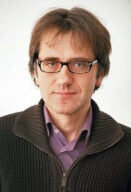
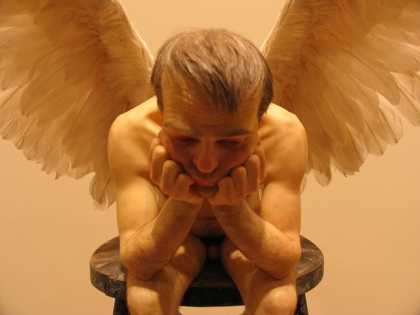
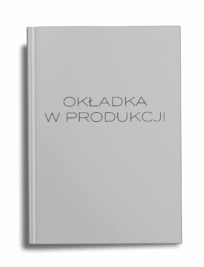
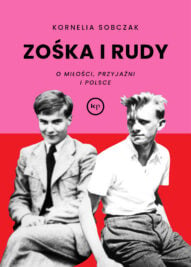
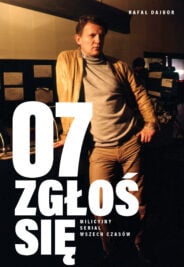
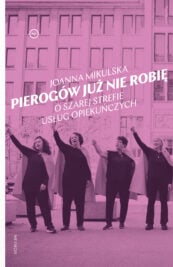



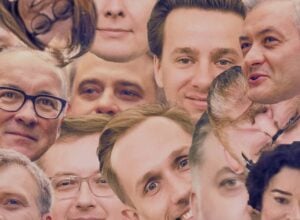
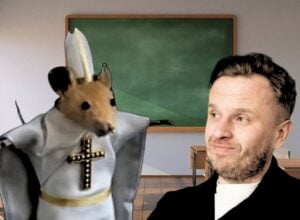
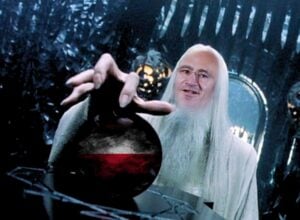
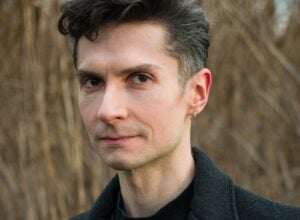
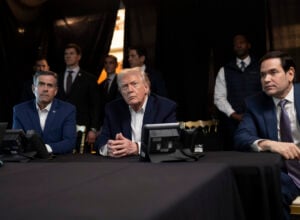
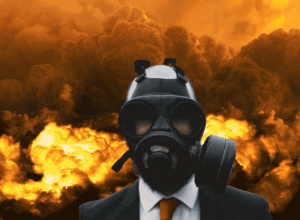
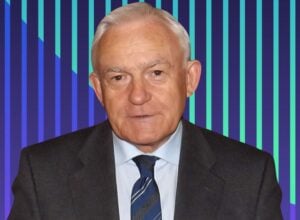
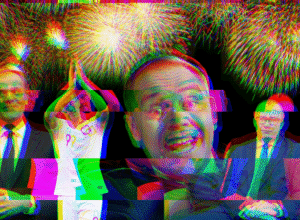
Komentarze
Krytyka potrzebuje Twojego głosu. Dołącz do dyskusji. Komentarze mogą być moderowane.